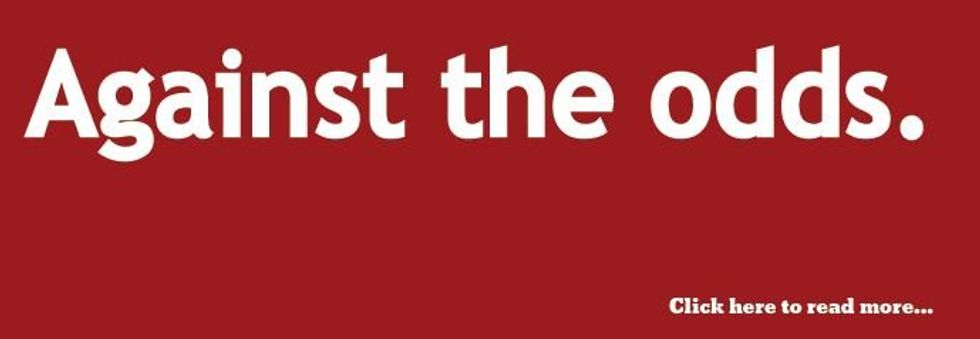Sometimes it takes a funnyman to make sense.
Earlier this week, British comedian John Oliver devoted a "Back to School" segment on his HBO program Last Week Tonight to examining the rapidly growing charter school industry and what these schools are doing with our tax dollars.
The Washington Post's education blogger Valerie Strauss watched the segment and reports that while Oliver declined to address whether or not charters provide high quality education, he focused mostly on how often these schools are "terribly - and sometimes criminally - operated." (You can see Oliver's entire sketch here.)
Editors at Rolling Stone watched Oliver's broadcast as well and report Oliver focused much of his attention on three states - Florida, Pennsylvania, and Ohio - that have "especially depressing charter track records - including negligence in the approval process and school executives embezzling funds."
For some time now, I've reported on the alarming spread of charter school scandals in these states, and elsewhere, in numerous articles for Salon. So very little of what Oliver exposes is new to the public. But because of the reach of HBO, Oliver's international popularity, and his ability to turn serious subjects into very funny - even if upsetting - material, advocates in the charter industry mustered a strong defense with numerous blogposts and press releases calling Oliver's anecdotes "outdated," his treatment of charters "uninformed" and unfair, and his opinions too disinterested in the needs of parents, especially from communities of color.
None of Oliver's critics seriously refuted the crux of his argument that there might be something fundamentally wrong by design, rather than by implementation or intent, with the idea that a "free market" of privately operated and essentially unregulated schools is a surefire way to improve education opportunities for all students.
Indeed, charter schools are "here to stay" has become a refrain among advocates for these schools, even though there's no doubt the controversy caused by this new parallel school system is just beginning, and no one can predict what the ongoing conflict will lead to.
The charter industry is currently responsible for educating a small percentage of students - just 6-7 percent nationally and barely measurable in many communities, especially more well-to-do metropolitan and rural areas. A minority of Americans and relatively few politicians completely understand what charter schools are. And most experts have mixed views on the purpose of the schools.
However, what charter advocates generally won't admit is that many of the problems these schools cause are reflective of what inevitably seems to happen when an essential public service is privatized.
The charter industry claims its schools are "public" institutions because they get tax dollars, but that's like saying a defense contractor is a public business because it takes in revenues from the federal government.
Numerous experts point out charter schools blur the line from what it means to be a public institution providing a public good and that, by their very design, they expand opportunities to profiteer from public tax dollars and privatize public assets.
People in communities affected by these schools are just beginning to see the conflicts these institutions cause, and it's just a matter of time before government officials at all levels are forced to respond to the increasing concerns with these schools.
Just consider recent actions taken by the Department of Justice to curtail the expansion of the private prison industry - a privatization trend that generally predates the rise of the charter industry.
As Mother Jones reports, after "a damning report on the safety, security, and oversight of private prisons," DOJ announced it would stop contracting with these institutions.
Donald Cohen, who leads In the Public Interest, an organization that researches problems posed by privatizing public services, writes for Huffington Post, privately operated prisons are fundamentally flawed because the business model they must follow encourages the companies to "actively seek new prisoners to fill facilities they own."
As ITPI has previously reported, "in an effort to provide the service with fewer resources while also maximizing profits, [private prison] companies often cut corners, reducing the quality, effectiveness, and accessibility of the service."
"The more contractors can cut costs on running their facilities, the wider their profit margins," writes Aman Banerji for the Roosevelt Institute. "No wonder ... private prisons contracted by the Bureau of Prisons (BOP) contain one or more security deficiencies, health service deficiencies, and a greater number of food grievances."
This clear and obvious conflict of interest - between serving the public and rewarding private enterprise - led to a misalignment with DOJ's mission to hold an essential function of government to the high standards the public demands.
If the charter school industry believes it can avoid this conflict, it's kidding itself.
More than one attentive blogger has noticed the striking similarities between charter schools and the private prison industry. In one of these posts, Mitchell Robinson notes that charters, like private prisons, differ from the public counterparts by not being locally managed or controlled, not providing the same level of services and programs, and not answering to the same level or degree of regulation and oversight.
Over the years, the US Department of Education has rewarded charter schools with over $3.3 billion in federal funds, and with passage of the most recent federal education law, the every Student Succeeds Act, USDoE will send $333 million more to these schools before the current fiscal year is over.
Remarking on the actions DOJ took to end tax dollars going to the private prison industry, Banerji concludes, "It offers an opportunity to contest the privatization of state services beyond the prison system."
Let's hope reexamining the role of charter schools is the next step.

